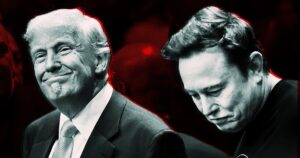Elon Musk Steps Down from Trump Administration Advisory Role
Elon Musk, the CEO of Tesla and SpaceX, has formally withdrawn from his position within President Donald Trump’s administration. Musk, who had previously joined a number of advisory councils organized by the Trump White House, announced that he would no longer participate in those roles. His decision marks a clear break from the administration, highlighting a shift in his stance toward U.S. government policies under Trump.

Musk had been part of several high-profile business councils, including the President’s Strategic and Policy Forum and the Manufacturing Jobs Initiative. These councils were formed to provide guidance and feedback on economic strategies and to facilitate collaboration between the business sector and the federal government. Musk initially agreed to participate in the hopes of influencing policy in areas such as renewable energy, innovation, and infrastructure.
However, Musk’s departure followed rising tension between his personal values—particularly regarding climate change—and the administration’s political direction. The breaking point came when President Trump decided to withdraw the United States from the Paris Climate Agreement. This global accord was designed to reduce carbon emissions and combat global warming, a cause Musk has consistently championed through his work in electric vehicles and solar energy.
Shortly after Trump announced the U.S. exit from the Paris Agreement, Musk took to social media to declare his resignation from the advisory councils. In his statement, he emphasized that climate change is a critical issue that demands global cooperation, and he could not, in good conscience, continue advising a president who chose to abandon that responsibility.
Musk’s departure was seen as a symbolic and influential move. As one of the most prominent voices in the technology and clean energy sectors, his exit drew attention to the growing divide between the administration and leaders of innovative industries. Many in the public and private sectors interpreted Musk’s decision as a stand for science-based policymaking and environmental responsibility.
Though Musk had previously been criticized by some for agreeing to work with the Trump administration, he explained that he believed engaging with policymakers—even those with whom he disagreed—was necessary to effect change from within. However, the decision to leave the Paris Agreement crossed a line for him, ultimately prompting him to sever those advisory ties.
In stepping away from his official role, Elon Musk sent a powerful message about the importance of environmental action and corporate integrity. His move was a reminder that business leaders, too, have a voice in shaping national and global priorities—and that sometimes, walking away is the most impactful statement they can make.